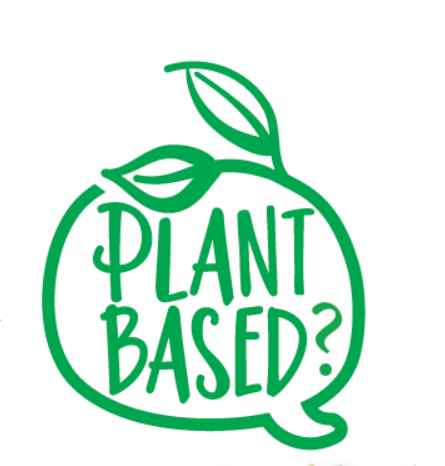Plant-based diets (patterns that maximize plant-derived foods and minimize animal-derived foods) are a good choice for your health. They are consistently associated with lower risk of various chronic diseases, including cardiovascular disease and type 2 diabetes. And plant-based foods are generally better for the environment.
But not all plant-based choices are equally healthful. Highly processed foods—even if they originate from plant sources—may not have the same health benefits as whole or minimally processed plant foods. In fact, many (like those made with refined starches and added sugars) could even carry health risks.
Processing Matters. If you are looking to make dietary changes that support good health, simply cutting back on intake of animal products is not enough. “It’s increasingly clear that ultra-processed foods of both plant and animal origin are linked to risk of chronic diseases,” says Dariush Mozaffarian, MD, DrPH, dean of the Friedman School and editor in chief of Tufts Health & Nutrition Letter.
Highly (or ultra) processed foods combine isolated food ingredients, vitamins, and other additives to create a convenient product (think white bread, most breakfast cereals, sugar-sweetened beverages, and formed chicken nuggets). Unprocessed foods are in their original form—part of a plant (like a fruit, nut, or leaf) or an egg, for example. Minimally processed foods, in general, are changed just enough to make them ready or safe to eat or preserve. Examples include heating, freezing, and canning (like pasteurized milk, frozen vegetables, or canned tuna).
Dietary patterns rich in whole and minimally processed plant foods provide plenty of fiber, unsaturated fats, vitamins, minerals, and phytochemicals and not a lot of refined starches, added sugars, saturated fat, salt, and other additives associated with health problems. Highly processed foods tend to provide the opposite. Additionally, the more processing a food undergoes, the less it retains the structure of its original plant or animal sources. “Loss of intact food structure speeds up digestion and causes an undesirable rush of nutrients into the blood stream,” says Mozaffarian. “It also leaves little food to reach the large intestine, starving the friendly gut bacteria that live there.” Also, the more highly processed foods on your plate, the less room there is for health-promoting whole and minimally processed plant-based foods.
Processing and Health. A 2019 analysis of randomized controlled trials concluded that replacing red meat with minimally processed plant protein sources (legumes, soy, nuts) improves blood cholesterol levels, but replacing these animal foods with highly processed plant-based carbohydrates (products made with refined grains and simple sugars, such as white bread, pasta, and cookies) does not produce these benefits.
A 2020 study found that plant-based diets were associated with lower risk of coronary heart disease—unless these diets were mainly composed of processed foods. Another study looking at blood pressure found that a minimally processed plant-based diet (including whole grains, fruits, vegetables, nuts, legumes, vegetable oils, and tea/coffee) was associated with lower blood pressure, whereas an unhealthy plant-based diet (high in refined grains, sugar-sweetened beverages, sweets and desserts, and fruit juices) was not. Previous research had found similar results for type 2 diabetes: an unhealthy plant-based diet was associated with higher risk of this common condition, while a healthy plant-based pattern was associated with lower risk.
“We cannot assume a product is healthy simply because it’s plant-based,” says Mozaffarian. “At the same time, research has found that a number of animal-based foods (for example fish, other seafood, yogurt, poultry, and cheese) are not associated with negative health effects.”

Image © IGphotography | Getty Images
New Options. While plant-based options like tofu have been around for generations, the market for plant-based meat and dairy alternatives has expanded as more consumers look to increase their plant food intake and decrease intake of animal-derived foods. A number of food manufacturers now aim to create plant-derived foods that look and taste as similar to their animal-based inspirations as possible. This includes “milks” made from soaking, grinding and straining soybeans, nuts, or grains; non-dairy “cheeses;” and plant-based foods that closely mimic meat products like hamburgers or sausage. Many of these products are considered ultra-processed foods, and their health impact is not clear. A recent observational study in France found that participants who were vegetarians or vegans consumed more ultra-processed foods than meat eaters, particularly due to eating more plant-based meat and dairy substitutes.
Uncertain health impact aside, most highly processed plant-based products are better for the environment than animal products. “This difference is particularly striking for red meats like beef and pork,” says Nicole Tichenor Blackstone, PhD, an assistant professor in the Division of Agriculture, Food, and Environment at the Friedman School. “For example, recent research has shown that making popular burger-replacement products requires over 90 percent less land and over 85 percent less water and emits 90 percent less greenhouse gasses than a conventional beef burger.”
The nutrient profile and slow digestion of less processed plant-based foods supports a healthy weight, blood sugar control, better cholesterol levels, lower blood pressure, decreased inflammation, better vascular health, and a well-balanced gut microbiome—all of which are good for protecting health. So, when you’re looking to replace animal foods with plant foods on your plate, prioritize whole and minimally processed options as the best choices for your health.
• Vegetables
• Whole grains
• Natural nut butters
• Nuts
• Seeds
• Beans
• Lentils
• Tofu
• Plant oils
• Tea, coffee(unsweetened)
























